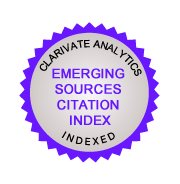Malaysian Indirect Tax Administration System: An Analysis of Efficiency and Taxpayers’ Perceptions
Abstract
This study examines the level of efficiency of the indirect taxes administration system. The level of efficiency was analysed through the trends of the costrevenue ratio; arrears-revenue ratio; and revenue detected-collected ratio. Further investigation was carried out to see whether the Malaysian indirect tax system has all the characteristics of a good tax system as perceived by the taxpayers based on the tenets proposed by the Institute Chartered Accountants of England and Wales (ICAEW). The result of the study revealed that the Malaysian Customs Department has been collecting less indirect taxes revenue each year as compared to the costs incurred in the process of acquiring the revenue. An analysis on the ratio of total arrears to total revenue collected also indicated that uncollected indirect tax revenues is on the increasing trend. It shows that the rate of increase in the amount of overdue taxes is more than the amount of revenue collected each year. It was also revealed that on the average, only 60% of the revenue loss detected could be recovered for the period 1995 to 2001. The trend of collection has been rather stable even though the revenue detected had increased. Regarding the characteristics of a good tax system, based on the respondents surveyed, there are mixed responses for each characteristic as perceived by the taxpayers. The findings revealed that there is an existence of a good legislation under the tax system and the tax system is constant and regularly reviewed. However, they had disagreed that the present system is certain and simple; proper consultation has been made before any new legislation is issued; and that the overall system is fair. From all the characteristics suggested, the taxpayers ranked “statutory†as the highest and “proper consultation†as the lowest.













